A Pressing Problem Right Under Our Noses
The Phone in Your Pocket
February 7, 2022
“Sometimes the most pressing problems are right under our noses, already directing a million people’s thoughts.” – Tristan Harris, Technology Ethicist, President and Co-founder of the Center for Humane Technology
Be honest with yourself. How many times a day do you find your fingers crawling into a back pocket, purse, or whatever for advice that perhaps has become less of an object of communication and more of an acceptable distraction?
Recently, I sought out Mr. Feist, Tahoma High School Associate Principal, to hear what he had to say on the subject;
“Over the past few years I’ve taken more notice of this, that it’s become a habit for people in general… when there is a pause in any kind of action they’ll check the time, or an update, or maybe just fidget with it.”
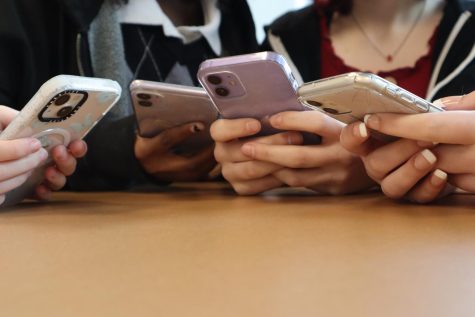
Phones. We’ve all experienced a car ride when no one seems to have anything to say, rode an elevator at some point in our lives and found ourselves in the company of a stranger, and every week we approach the grocery checker loaded with goods.
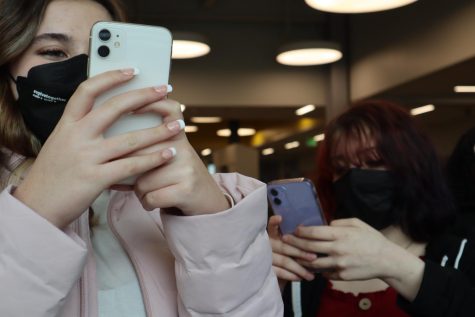
But what do we do in these moments?
And how often is our phone involved at these times?
Do we look people in the eye and genuinely ask how their day has been? Do we shake hands with strangers? Or do we sit back on a quiet drive, and simply accept a period of silence.
The image of how we handle these situations is unique to every individual. But has our human response to real life scenarios, like these, evolved over the last decade, along with our advancing technology?
The first smartphone went on the market in June, of 2007. Opportunities for communication have always been existent, and essential.
Yet with the explosion of advanced communication through virtual methods, have we neglected our primary ways of communicating?
“Maybe instead of worrying about hypothetical future artificial runaway
intelligence that are maximizing for one goal, we could solve the runaway artificial intelligence that already exists right now; which are these newsfeeds maximizing for one thing.” Tristan Harris, Technology Ethicist, President and co-founder of the Center for Humane Technology
Our social lives connect with our smart phones in one way or another, but at what point does this connection become harmful, rather than helpful?
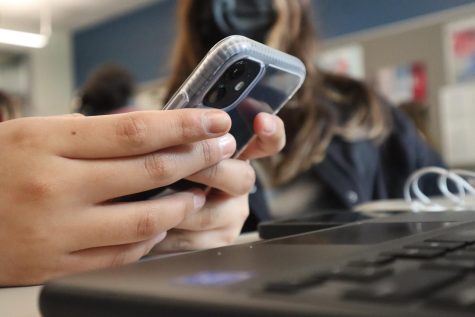
“At the end of our lives, all we have is our attention and our time. What will be well spent for ours?”
Have virtual methods of communication robbed us of traditional ones?
Mr. Feist made a comment on his frustration surrounding mindless time spent on phones.
“Like my kid, right, will take a picture of half his face and just snap it. I’m like why are you doing that? What does that even mean?”
Mr. Feist brings up a notable point. What does this mean?
Are we snapping half pictures of faces purely to let friends know we’re still alive?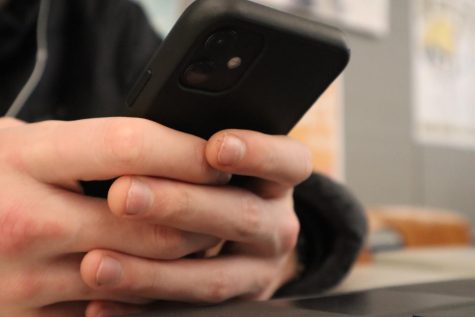
Think back two decades ago. A phone call meant a considerate 10 minutes or more out of a loved one’s day, devoted just to talking with you. How many hundreds of half selfies is one call like this worth? How much more is a moment in time spent face to face with someone important to you?
“Nothing is more precious than being in the present moment. Fully alive, fully aware.” – Thich Nhat Hanh
If you, like me, are captivated by confrontation of this pressing problem right under society’s nose. I would recommend checking out “The Social Dilemma” A documentary on Netflix. As well as tuning into a “How a handful of tech companies control billions of minds everyday.” A Ted Talk by Tristan Harris, Technology Ethicist and Co-founder of the Center for Humane Technology.



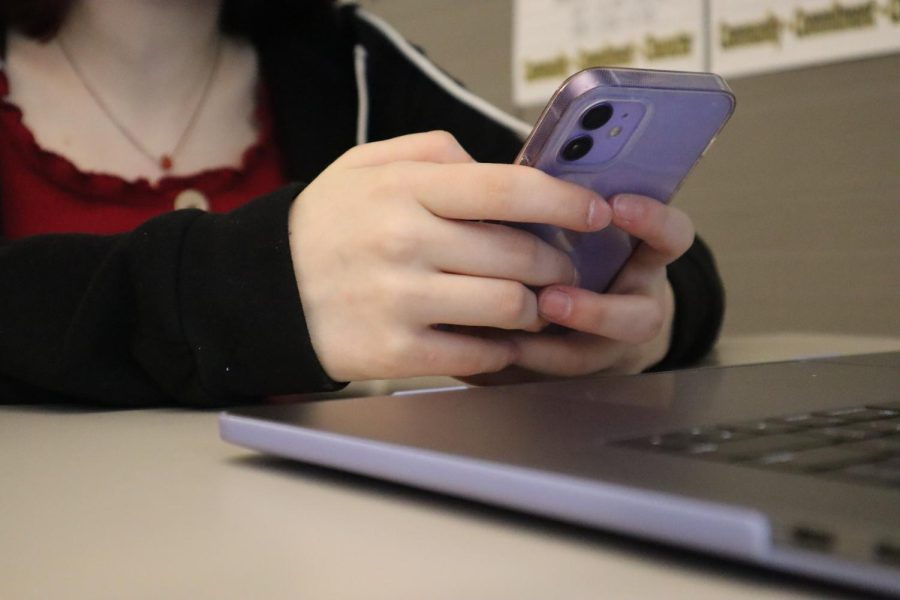
Joycie • Mar 14, 2022 at 4:55 pm
Adaline, this is beautifully written, and full of really great thought provoking info. I did watch the Netflix documentary and found it right on!!! Awesome job, girl!!!…awesome job!
Adaline • Apr 13, 2022 at 5:21 pm
Thank you so much Joycie!
I appreciate you taking the time to read this piece. When I watched the Netflix documentary with my family I found it highly thought provoking and disturbing. I think it offers a powerful call to action. 🙂
ethan and angus • Feb 11, 2022 at 9:44 am
awesome sauce, it is good.
CHRIS FEIST • Feb 7, 2022 at 2:07 pm
well written piece Adaline. The title is a nice play on words. Good job.
Adaline McDowell • Feb 15, 2022 at 3:59 pm
Thank you Mr. Feist! I appreciated the opportunity to interview you on this topic.
Isabella • Feb 7, 2022 at 1:35 pm
i love this
Adaline McDowell • Feb 7, 2022 at 1:48 pm
Thank you! 🙂